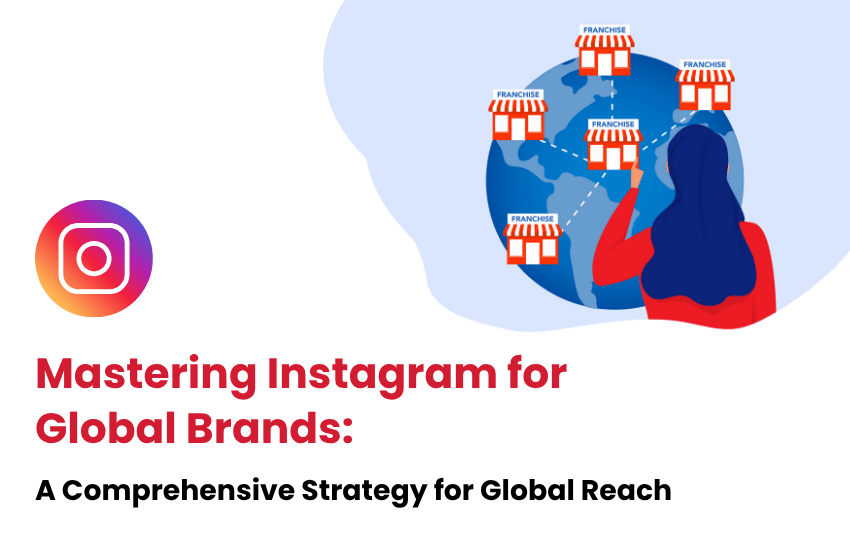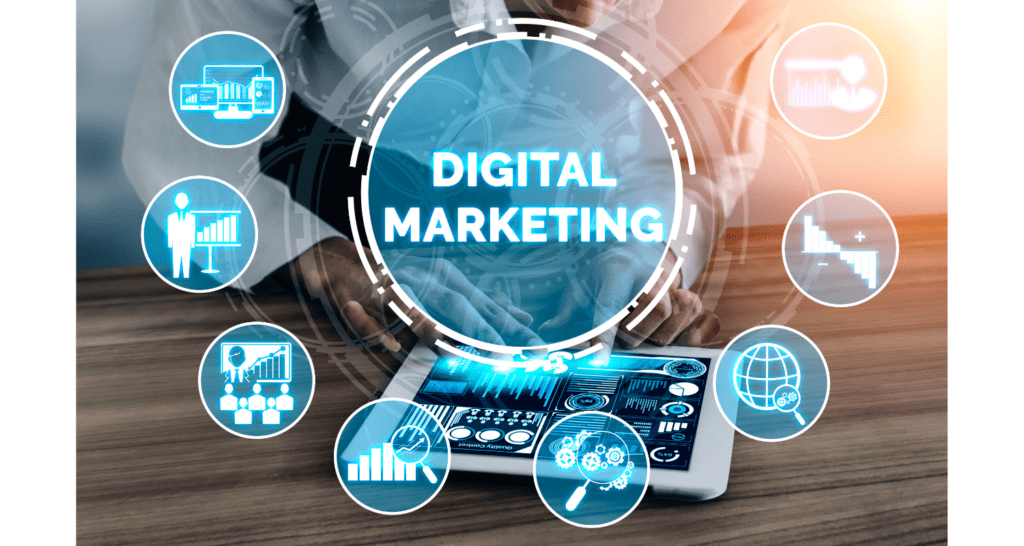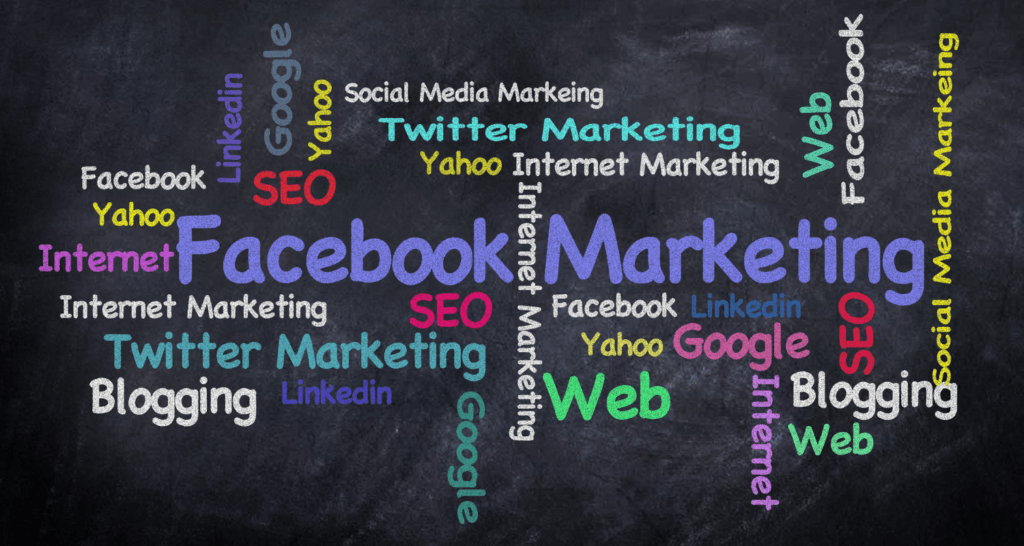
From Visibility to Sales: Meta & Instagram Marketing Strategy For Ecommerce Businesses in 2025
Did you know that over 3.8 billion people worldwide are active on Meta platforms like Facebook and Instagram, making them the largest social media networks by far? With these platforms driving more than 70% of social media referrals to ecommerce sites, the stakes have never been higher for businesses.
As social media marketing continues to evolve, businesses must adapt to AI-powered targeting, shifting algorithms, and changing consumer behavior to stay ahead. In this article, we will read about why a dedicated Meta and Instagram strategy for ecommerce businesses is crucial for business success in 2025.
What is Meta and Instagram Marketing?
Meta and Instagram marketing dominate the digital space, helping businesses engage audiences, boost sales, and stay ahead with advanced targeting and automation.

- Instagram Marketing
In Instagram marketing, businesses leverage Reels, Stories, and posts to capture audience attention and boost brand visibility. Collaborating with influencers enhances trust and credibility, while a mix of organic content and paid promotions ensures higher engagement, increased reach, and better conversion rates.
- Meta Marketing
In Meta marketing, businesses utilize AI-driven insights and targeted ads on Facebook, Instagram, and Messenger to optimize reach. Advanced audience segmentation improves ad performance, while interactive features like WhatsApp Business enhance customer interactions, driving higher engagement, stronger brand loyalty, and increased sales.
Key Reasons to Invest in Meta and Instagram Marketing

Here are three reasons why your ecommerce business must invest in Meta and Instagram Marketing in 2025:
1. Unmatched Audience Reach and Engagement
Meta and Instagram’s massive global user bases provide ecommerce businesses with unparalleled opportunities to connect with customers.
- Global Penetration: With billions of active users, Facebook and Instagram allow businesses to expand into new markets and connect with diverse audiences. Their widespread adoption enables brands to build awareness and reach potential customers on an international scale.
- High Engagement Rates: Instagram’s interactive features like Stories, Reels, and Shopping have transformed user behavior, increasing time spent on the platform. These dynamic content formats encourage audience participation, turning passive viewers into active consumers and enhancing brand loyalty.
- Cross-Platform Synergy: Meta’s ecosystem, including Facebook, Instagram, Messenger, and WhatsApp, allows seamless cross-platform marketing. Businesses can repurpose content, run synchronized ad campaigns, and engage users across multiple channels, maximizing visibility and customer interactions.
Example: In 2024, L’Oréal Paris leveraged Instagram’s interactive features during Paris Fashion Week, resulting in a media impact value of $1.14 billion.
2. Advanced Targeting Capabilities
Meta’s powerful targeting tools help businesses deliver highly relevant content to the right audiences. AI-driven insights ensure ad campaigns reach their full potential.
- Behavioral and Demographic Targeting: Meta allows businesses to target users based on specific interests, online behaviors, location, and purchasing habits. This precision targeting ensures marketing messages resonate with the most relevant audience segments, increasing conversion rates.
- AI-Powered Insights: Real-time data analysis, powered by artificial intelligence, helps brands refine their campaigns by identifying trends, optimizing ad placements, and improving customer engagement. AI-driven optimizations maximize return on investment by delivering ads to users most likely to convert.
- Lookalike Audiences: Meta’s Lookalike Audience feature helps businesses expand reach by targeting users who share similar characteristics with existing customers. This strategy increases the chances of acquiring high-intent buyers and optimizing ad spend for better conversions.
Example: Spotify’s influencer marketing strategy in 2024 utilized AI-driven analytics to identify and retain creators, achieving an 83% retention rate and significant engagement.
3. Seamless Social Commerce Integration
Meta’s in-app shopping features make it easier than ever for businesses to convert engagement into sales.
- In-App Shopping Features: Instagram Shopping and Facebook Shops allow users to discover, browse, and purchase products without leaving the app. This seamless shopping experience reduces friction in the buying process, increasing impulse purchases and boosting overall sales.
- Live Shopping Events: Live streaming combined with shopping integrations enables brands to showcase products in real time, answer customer questions, and drive immediate purchasing decisions. These events foster a sense of urgency and exclusivity, enhancing customer engagement.
- AI-Driven Product Recommendations: Meta’s AI suggests personalized product recommendations based on user behavior, past purchases, and browsing history. This enhances the shopping experience, increases conversions, and boosts sales by delivering relevant products to potential buyers.
Insta Marketing Example –
Marc Jacobs’ collaboration with content creator Nara Smith
A notable instance is Marc Jacobs’, a tote bag brand’s collaboration with content creator Nara Smith. Known for her unique videos, Smith partnered with Marc Jacobs to create a distinctive campaign. She produced a video where she ‘crafted’ a Marc Jacobs tote bag from scratch, aligning with her typical content style.
This video garnered significant attention, amassing over 13.7 million views and generating substantial media impact value. This collaboration exemplifies how brands can effectively utilize influencer partnerships on Instagram to enhance brand visibility and engagement.
Strategy for Businesses in 2025

A well-structured Meta and Instagram marketing strategy is essential for business growth in 2025. Here’s a step-by-step strategy to follow:
1. Define Clear Goals
Setting well-defined objectives aligns efforts and ensures measurable success. Here’s how having clear goals helps:
- Establish measurable objectives to track key performance indicators like brand awareness, lead generation, or conversions. Clear goals help refine marketing tactics and measure success effectively, ensuring that all efforts contribute to business growth and profitability.
- Align social media with business goals by integrating marketing efforts with overarching company objectives. This ensures consistency across campaigns, enhances brand messaging, and optimizes resources for maximum return on investment across Meta and Instagram.
- Use SMART goals to create a structured, results-driven approach. Specific, Measurable, Achievable, Relevant, and Time-bound goals help businesses set realistic expectations, optimize campaign performance, and continuously improve strategies based on measurable data insights.
For example, True Religion used SMART goals in its “Style is a Gift” Instagram campaign, collaborating with influencers to boost engagement, web traffic, and sales. The campaign achieved a 98% engagement increase, 500% TikTok growth, and significant revenue gains through strategic social media marketing.
2. Identify and Understand Your Target Audience
Effective targeting improves engagement and conversion rates. We can identify them in the following ways:
- Utilizing Meta’s analytics to analyze demographics, interests, and behaviors. By leveraging AI-driven insights, businesses can refine audience segmentation, personalize content, and create highly relevant campaigns that resonate with potential customers, leading to higher engagement and conversions.
- Segmenting audiences effectively by grouping them based on age, location, purchasing habits, and interests. This allows businesses to tailor content, offers, and messaging to different audience segments, increasing relevance and maximizing customer engagement.
- Leveraging AI-powered tools to enhance audience personalization. AI-driven automation allows businesses to predict customer preferences, deliver dynamic content, and optimize marketing campaigns, ensuring higher engagement, better retention, and increased return on investment.
3. Content Strategy for Engagement and Growth
A strong content plan builds brand authority and customer trust.
-
High-Quality Content Creation
Compelling content not only attracts but also retains audience attention by engaging, informing, and providing value, ensuring sustained interest and deeper connections.
- Focus on short-form videos, carousels, and Stories to boost engagement. Short, visually appealing content will perform better in 2025, as users prefer quick, digestible information over lengthy posts, making reels and interactive media essential for brand success.
- Maintain a consistent brand voice and visual identity to strengthen recognition. A unified style across Meta and Instagram ensures credibility, builds trust with followers, and fosters customer loyalty, leading to higher engagement and better brand recall.
- Use storytelling techniques to create emotional connections with your audience. Engaging narratives, customer testimonials, and behind-the-scenes content foster deeper relationships, making the brand more relatable and memorable for potential and existing customers.
For instance, Nike’s “Dream Crazy” campaign, featuring Colin Kaepernick, used powerful storytelling to inspire audiences and create deep emotional connections. By embracing bold messaging and social impact, Nike strengthened brand loyalty, sparked global conversations, and significantly boosted engagement across digital platforms and social media.
-
AI-Driven Personalization
Personalized content enhances user engagement and retention by catering to individual preferences and needs.
- Implement AI-driven automation tools to customize content based on audience behavior. AI can analyze preferences, suggest tailored posts, and optimize engagement strategies, making interactions more relevant and meaningful for potential customers.
- Use predictive analytics to create relevant, timely posts. AI-driven insights help businesses determine the best posting times, content formats, and messaging styles, ensuring higher engagement rates and increased customer satisfaction.
- Personalize messaging and offer to resonate with individual users. Customizing product recommendations, captions, and ad creatives based on browsing habits and past interactions enhances user experience, fostering brand loyalty and increasing sales.
For example, Amazon utilizes AI algorithms to analyze users’ browsing and purchase histories, enabling the platform to recommend products tailored to individual preferences. This approach has significantly enhanced user engagement and boosted sales.
| Strategy Component | Objective | Key Actions | Expected Outcome |
| Audience Targeting | Reach the right customers | Use AI-powered audience segmentation, lookalike audiences, and interest-based targeting | Higher engagement and relevant traffic |
| Content Strategy | Capture attention and build brand authority | Focus on Reels, Stories, and shoppable posts with interactive polls & UGC | Improved brand visibility and engagement |
| Paid Advertising | Drive qualified traffic and conversions | Use Meta Ads Manager for automated campaign optimization and split testing | Increased ROAS and conversions |
| Influencer Collaborations | Build trust and widen reach | Partner with micro-influencers who align with brand values | Authentic engagement and expanded reach |
| Social Commerce | Simplify purchase journey | Enable Instagram Shops and Meta Checkout for seamless in-app purchases | Reduced friction, higher sales |
| Performance Tracking | Measure & optimize performance | Monitor KPIs like CTR, ROAS, CPA, engagement rate with Meta Business Suite | Data-driven optimizations and better decision-making |
| Customer Engagement | Strengthen brand-customer relationship | Use automated DM replies, interactive Stories, and live Q&A sessions | Better retention, repeat purchases |
| Sustainability Messaging | Appeal to eco-conscious consumers | Highlight sustainable practices and ethical sourcing in posts | Positive brand perception and increased loyalty |
Why Cybez is Your Ultimate Meta and Instagram Marketing Partner
Cybez is the go-to social media marketing agency for ecommerce businesses seeking impactful results. We offer personalized strategies, compelling content, and data-driven insights that maximize engagement and boost conversions.
With advanced analytics, we optimize campaigns for stronger brand loyalty and sustainable growth. Our proven techniques have helped numerous businesses scale their online presence, staying ahead of the latest trends. Partner with us to elevate your brand and achieve measurable success with cutting-edge Meta and Instagram marketing solutions tailored to your goals.
❓ Frequently Asked Questions (FAQs)
1. What is the importance of having a Meta and Instagram marketing strategy for ecommerce businesses in 2025?
Meta and Instagram marketing helps ecommerce businesses expand reach, improve customer engagement, and drive sales through advanced targeting, influencer collaborations, and AI-powered automation. With over 3.8 billion active users on Meta platforms, a well-defined strategy ensures brands stay competitive by leveraging in-app shopping, personalized content, and cross-platform campaigns for maximum visibility and conversions.
2. How does AI-powered targeting improve ad performance on Meta platforms?
AI-powered targeting allows businesses to reach the right audience by analyzing user behavior, interests, demographics, and purchasing habits in real time. Meta’s AI-driven insights optimize ad placements, suggest lookalike audiences, and predict the best posting times. This leads to more efficient ad spend, higher engagement, and improved conversion rates by showing the most relevant content to users who are more likely to take action.
3. What role do influencer collaborations play in ecommerce marketing on Instagram?
Influencer collaborations help ecommerce businesses build brand trust and amplify reach. Influencers create authentic, engaging content that resonates with their followers, encouraging interactions and driving traffic to product pages. For example, Marc Jacobs’ campaign with content creator Nara Smith generated over 13.7 million views, showing how influencer partnerships create significant visibility and engagement while boosting brand credibility.
4. How can ecommerce businesses integrate social commerce in their strategy?
Social commerce integrates shopping directly into Meta and Instagram platforms using features like Instagram Shops and Facebook Shops. Businesses can tag products in posts, run live shopping events, and use AI-driven product recommendations to enable seamless purchases without leaving the app. This reduces friction in the customer journey, increases impulse purchases, and converts engagement into direct sales more efficiently.
5. Why should ecommerce businesses track performance regularly on Meta platforms?
Performance tracking allows businesses to measure the effectiveness of their campaigns by monitoring KPIs such as CTR, ROAS, CPA, and engagement rate. Meta Business Suite provides real-time analytics, enabling data-driven decisions. By analyzing performance, brands can refine strategies, improve targeting, optimize creative content, and ensure every marketing effort contributes to stronger engagement, higher conversions, and sustainable growth.

